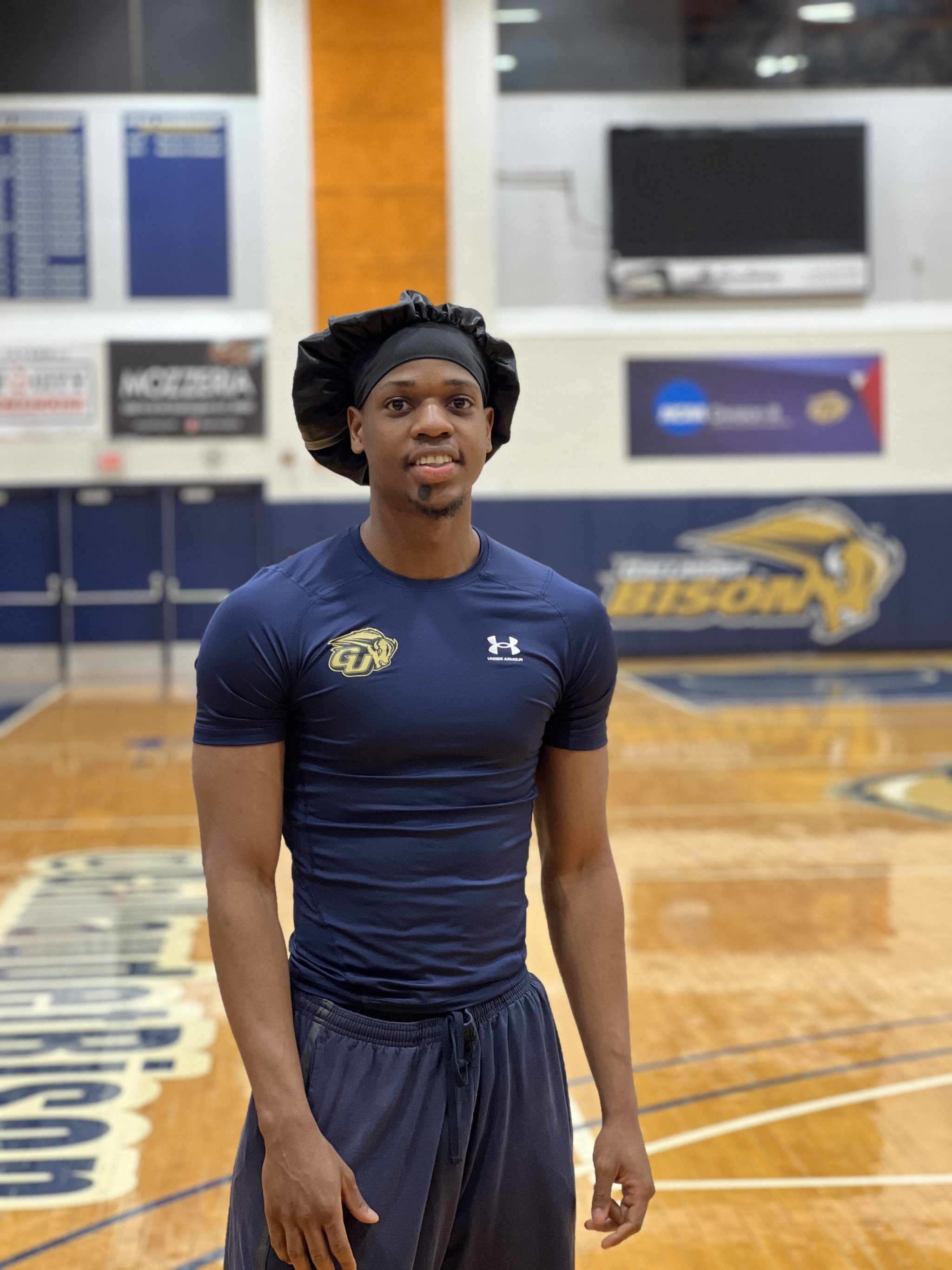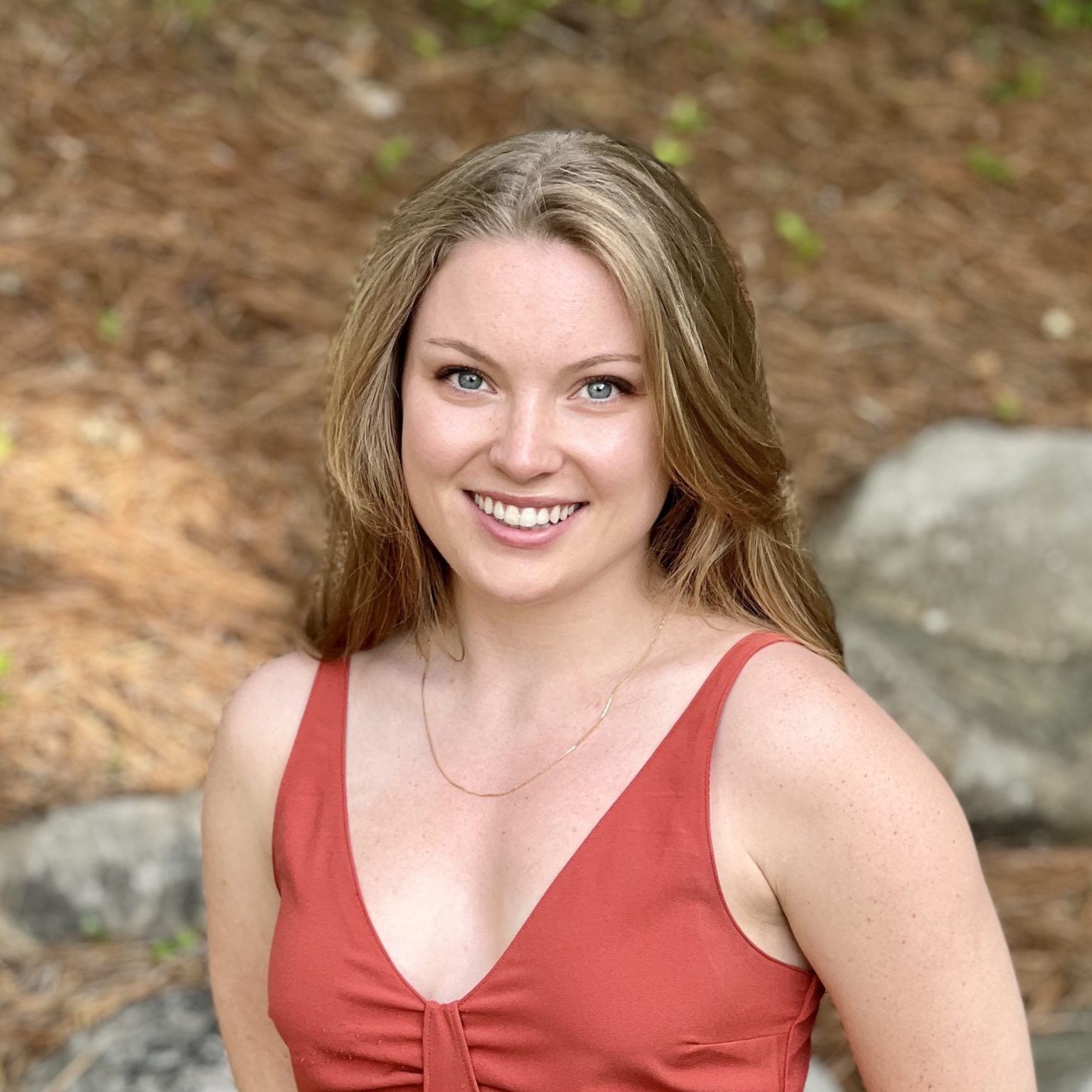Ever since he was a student at Rockville High School, Gallaudet University basketball player Blessed Mbogo has devoted countless hours of his life to the sport. Even when his mom told him that five hours of practice was too long—and he was getting home too late—Mbogo brushed it off. He loved the challenge.
“In football, you have your offensive lineup and defensive lineup, but in basketball you have to be good at both,” the 20-year-old says. “I just fell in love with the process of becoming a better player and how tough it was.”
Mbogo, who moved from Uganda to the United States in 2008, has faced an additional hurdle: he was born deaf. He received a cochlear implant, which imitates the function of a healthy ear to help him receive soundwaves, in third grade. However, he doesn’t wear the implant during games for fear of it falling out. So while most coaches and players can hear others yelling “pass,” or “I’m open,” Mbogo, a sophomore pre-med student, has learned different ways to communicate on the court.
At Gallaudet, Mbogo and his teammates rely on sign language and other physical gestures to signal play calling changes and discuss strategy between players. This requires teammates to have good chemistry with each other, almost like “telekinesis,” Mbogo says.
None of this has kept Mbogo from excelling on the court. One of the top deaf players in the country, he helped Team USA win a bronze medal in the deaf basketball competition at the Pan American Games in Buenos Aries last November—a victory that also qualified the team for the World Deaf Basketball Championships in Heraklion, Greece this summer.
At Rockville High, Mbogo was the team’s only deaf player, and he used an interpreter for practices and games. He became a leader for the varsity team, and his coach said he was “one of the best players.”
Still, Mbogo felt isolated at times, often missing out on team jokes and bonding. The appeal of playing on an all-deaf team was part of the reason Mbogo chose to attend Gallaudet. He also saw it as an opportunity to help grow the school’s basketball program. “I wanted to experience being a part of a process and doing what it takes to succeed,” he says. “I wanted to leave something when I’m gone.” Recently, his coach recommended him to the United East All-Sportsmanship Team, which honors athletes that embody the ideals of good sportmanship.
While competing in Argentina, Mbogo attracted the attention of Olympic coaches, who have also come to see him play at Gallaudet. They want him to make it all the way to the 2025 Deaflympics, sanctioned by the International Olympic Committee—and, now, so does Mbogo. He feels an additional responsibility to his trainer Anton Jackson, also a coach at Gallaudet, who started an organization called AdroitBucket that aims to build an elite group of deaf basketball players to help attract more investment into the deaf community.
“That’s his goal, and I’m a part of that,” Mbogo says. “I feel like I need to go as far as possible and then when people ask me how I got here, I can say ‘deaf people can play, you know. We can play.’”



















